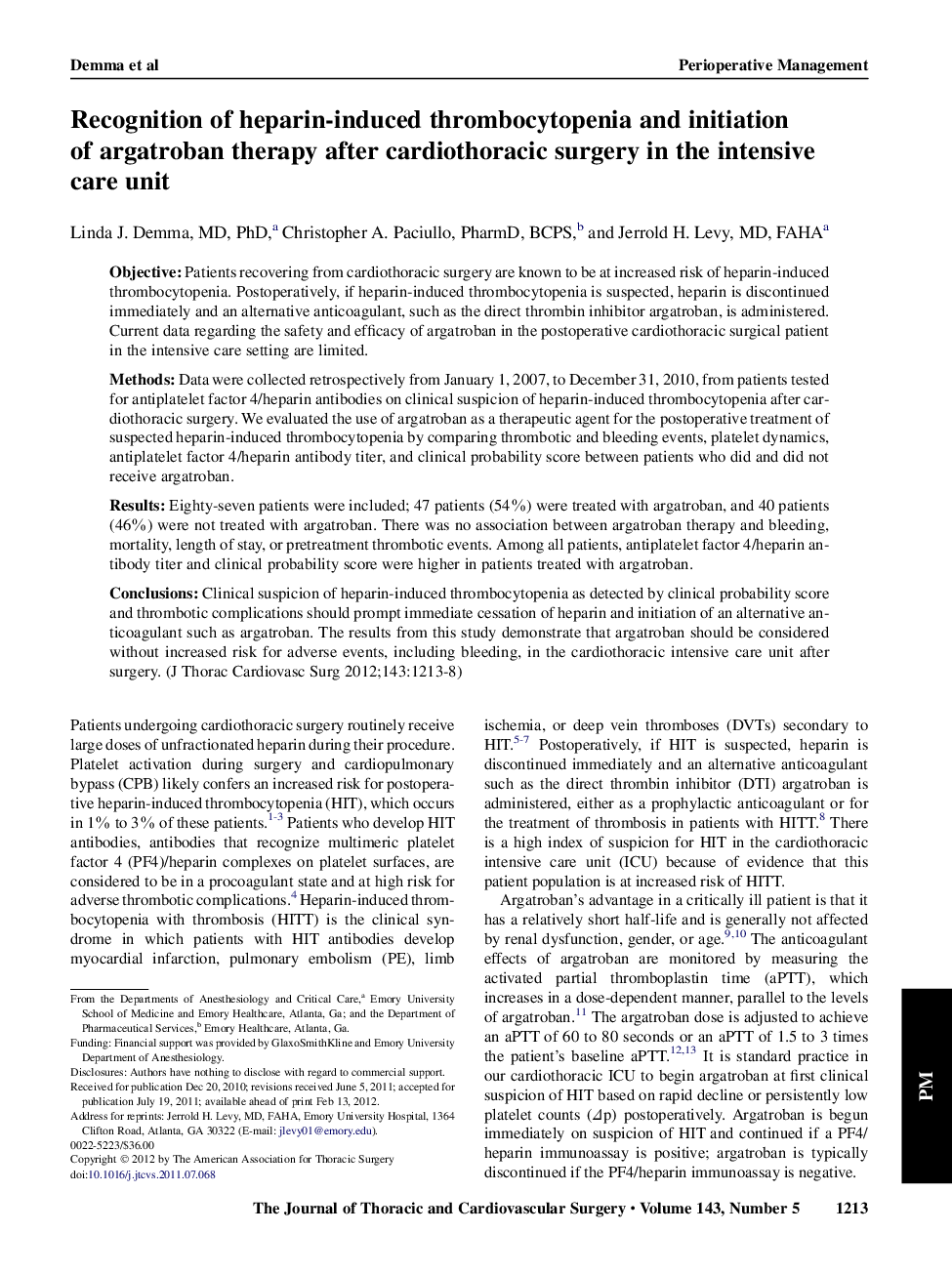| Article ID | Journal | Published Year | Pages | File Type |
|---|---|---|---|---|
| 2982170 | The Journal of Thoracic and Cardiovascular Surgery | 2012 | 6 Pages |
ObjectivePatients recovering from cardiothoracic surgery are known to be at increased risk of heparin-induced thrombocytopenia. Postoperatively, if heparin-induced thrombocytopenia is suspected, heparin is discontinued immediately and an alternative anticoagulant, such as the direct thrombin inhibitor argatroban, is administered. Current data regarding the safety and efficacy of argatroban in the postoperative cardiothoracic surgical patient in the intensive care setting are limited.MethodsData were collected retrospectively from January 1, 2007, to December 31, 2010, from patients tested for antiplatelet factor 4/heparin antibodies on clinical suspicion of heparin-induced thrombocytopenia after cardiothoracic surgery. We evaluated the use of argatroban as a therapeutic agent for the postoperative treatment of suspected heparin-induced thrombocytopenia by comparing thrombotic and bleeding events, platelet dynamics, antiplatelet factor 4/heparin antibody titer, and clinical probability score between patients who did and did not receive argatroban.ResultsEighty-seven patients were included; 47 patients (54%) were treated with argatroban, and 40 patients (46%) were not treated with argatroban. There was no association between argatroban therapy and bleeding, mortality, length of stay, or pretreatment thrombotic events. Among all patients, antiplatelet factor 4/heparin antibody titer and clinical probability score were higher in patients treated with argatroban.ConclusionsClinical suspicion of heparin-induced thrombocytopenia as detected by clinical probability score and thrombotic complications should prompt immediate cessation of heparin and initiation of an alternative anticoagulant such as argatroban. The results from this study demonstrate that argatroban should be considered without increased risk for adverse events, including bleeding, in the cardiothoracic intensive care unit after surgery.
